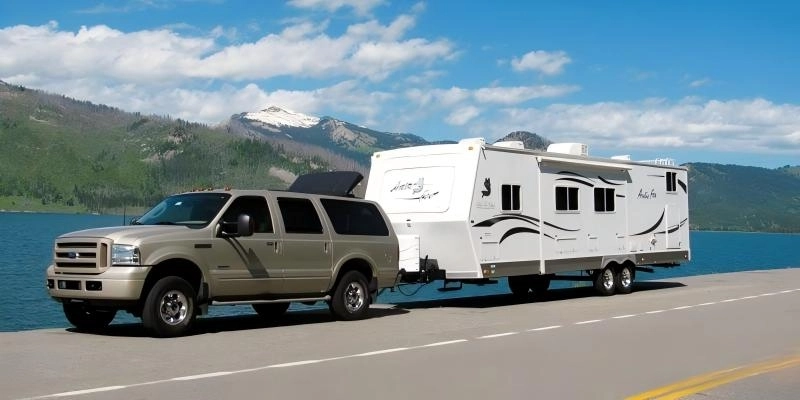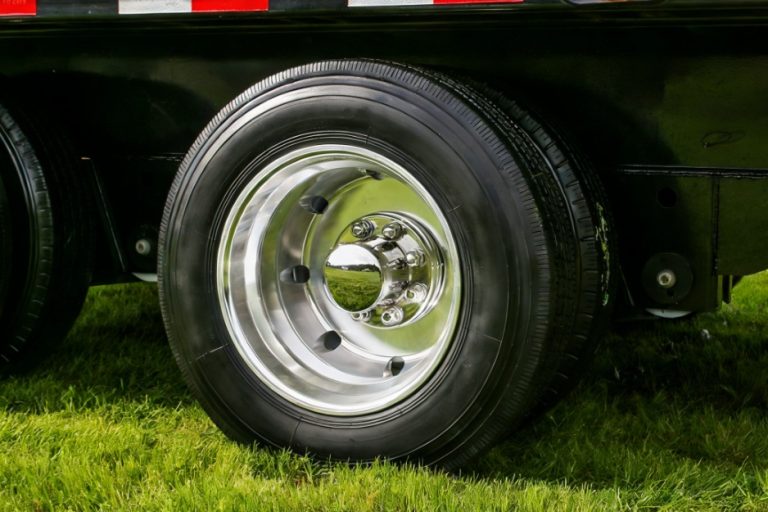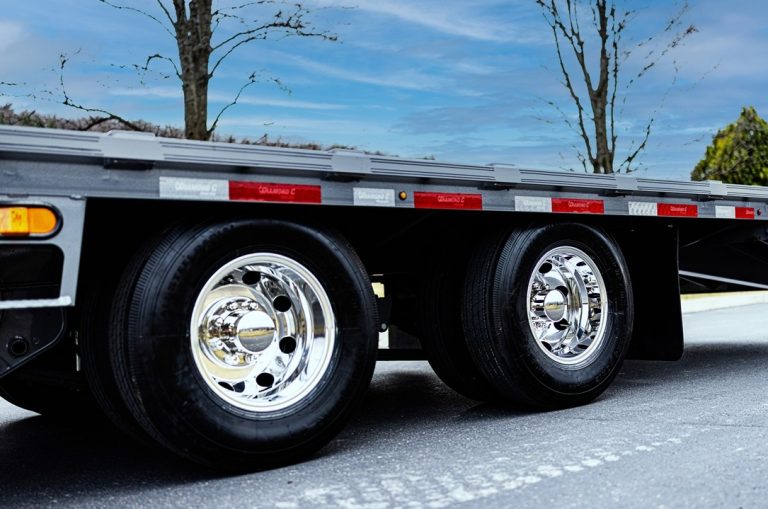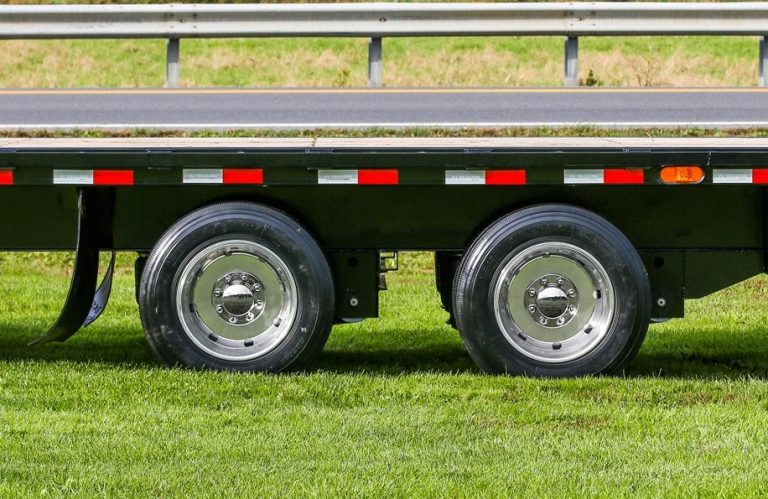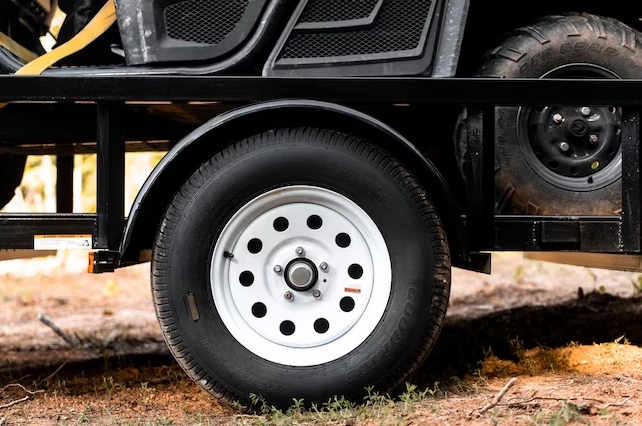Towing a trailer, like an RV, is a fun way to hit the open road. But it comes with a big job: keeping the connection between your vehicle and trailer safe. The trailer coupler is the key piece that holds everything together. Choosing the right one can make your trip smooth and worry-free.
In this easy-to-read guide, we’ll explore the types of trailer couplers, which ones work best for different trailers, and the must-have safety gear for towing. Whether you’re a pro at RV camping or just starting out, this article will help you pick the perfect ball trailer coupling or other coupler for your adventure.
Why the Right Trailer Coupler Is Important
A trailer coupler is the part that links your trailer to your tow vehicle’s hitch. It lets you turn smoothly and keeps the trailer attached. Picking the wrong coupler can cause wobbling or even dangerous disconnects. There are many types of trailer couplers. Each has its own strengths. Let’s look at them closely to see which fits your towing needs, especially for RV trips and ball trailer coupling setups.
Types of Trailer Couplers
The US has several trailer couplers. Each is made for specific trailers, weights, and towing tasks. Below, we list the main types of trailer couplers, their features, and what they’re best for.
Ball Couplers: Simple and Handy for Light Towing
Ball couplers, also called ball trailer couplings, are super common. They’re easy to use. They have a socket that fits over a hitch ball on your vehicle. A latch keeps it secure.
- Features:
- Works with standard hitch ball sizes (1-7/8”, 2”, or 2-5/16”).
- Made of strong steel with rust-proof coatings like zinc or powder.
- Handles 2,000 to 10,000 lbs, based on the class (Class I–IV).
- Benefits:
- Simple to hook up, great for newbies.
- Affordable for light to medium towing.
- Fits straight-tongue trailers well.
- Best for:
- Small to medium RVs, boat trailers, or utility trailers.
- Casual drivers who want an easy setup.
Suitability: Ball couplers are great for lightweight RVs or pop-up campers. But they’re not good for heavy loads. Always check that the coupler’s weight rating matches your trailer’s total weight (GTW).
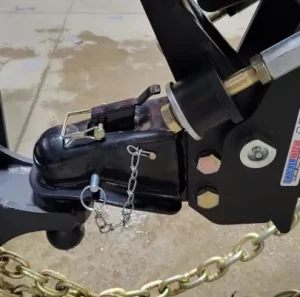
A-Frame Couplers: Steady for RV Adventures
A-frame couplers are built for trailers with an A-shaped tongue. You’ll see these on RVs and travel trailers. They offer solid stability for medium to heavy loads.
- Features:
- Rated for 5,000 to 21,000 lbs, stronger than most straight-tongue couplers.
- Comes with secure latches like posi-lock or sleeve-lock.
- Built from tough stamped or cast steel.
- Benefits:
- Cuts down on trailer wobble thanks to the A-shape.
- Great for highway or off-road trips.
- Easy to care for with a bit of grease now and then.
- Best for:
- Medium to large RVs, car haulers, or utility trailers.
- RVfans who tow over different terrains.
Suitability: A-frame couplers are awesome for RV owners with travel trailers or bigger campers. They’re steady and reliable. But they’re not the best for super heavy trailers like those needing gooseneck or fifth-wheel couplers.
Gooseneck Couplers: Strong for Big Loads
Gooseneck couplers are made for heavy towing. They connect to a ball hitch in the bed of a pickup truck. They’re popular with pros and heavy RV haulers.
- Features:
- Can handle up to 30,000 lbs, sometimes more.
- Fits 2-5/16” hitch balls in the truck bed.
- Adjustable for different vehicle heights.
- Benefits:
- Offers great stability by spreading weight over the truck’s back axle.
- Lets you make tight turns easily.
- Compact design saves space.
- Best for:
- Large RVs, horse trailers, or heavy equipment trailers.
- Long-distance RVtrips or pro towing.
Suitability: Gooseneck couplers are perfect for heavy RVs or trailers over 10,000 lbs. Their truck-bed setup reduces wobble. But you need a compatible truck and hitch.
Fifth-Wheel Couplers: Top Choice for Big RVs
Fifth-wheel couplers are special for large RVs and semi-trailers. They use a kingpin that locks into a fifth-wheel hitch in the tow vehicle’s bed.
- Features:
- Supports up to 30,000 lbs or more.
- Built for high stability and easy turning at high speeds.
- Needs a fifth-wheel hitch and a trailer with a pin box.
- Benefits:
- Perfect for towing tall, heavy RVs.
- Better turning than bumper-pull trailers.
- Secure lock lowers disconnect risks.
- Best for:
- Large RVcampers, fifth-wheel trailers, or commercial trailers.
- RVlovers who want luxury and stability.
Suitability: Fifth-wheel couplers are ideal for big RV trailers. They offer top-notch stability for long trips. But they don’t work for smaller vehicles or trailers without a pin box.
Pintle and Lunette Ring Couplers: Tough and Trusty
Pintle couplers use a lunette ring that hooks to a pintle hook on the tow vehicle. They’re common for heavy-duty or industrial jobs.
- Features:
- Handles up to 60,000 lbs, great for extreme towing.
- Made from solid steel for rough terrains.
- Some have spring-loaded or hydraulic latches.
- Benefits:
- Super tough for construction, farming, or military use.
- Secure fit prevents unhooking.
- Adjustable models fit different vehicle heights.
- Best for:
- Heavy equipment trailers, dump trucks, or flatbeds.
- Towers needing rugged, high-capacity couplers.
Suitability: Pintle couplers are too much for most RV towing. They’re best for heavy-duty trailers in tough settings.
Comparison Table: Trailer Coupler Types
| Coupler Type | Weight Capacity (lbs) | Best for | Hitch Type | Key Advantage |
| Ball Coupler | 2,000–10,000 | Small RVs, boat trailers | Ball hitch | Easy, budget-friendly |
| A-Frame Coupler | 5,000–21,000 | Medium/large RVs, car haulers | Ball hitch | Steady, less wobble |
| Gooseneck Coupler | Up to 30,000 | Large RVs, heavy trailers | Truck bed ball hitch | Great weight spread, tight turns |
| Fifth-Wheel Coupler | Up to 30,000+ | Large RV campers, semi-trailers | Fifth-wheel hitch | High stability, easy turns |
| Pintle/Lunette Ring | Up to 60,000 | Heavy equipment, industrial | Pintle hook | Tough, high capacity |
Must-Have Safety Gear for Towing Trailers
Picking the right coupler is only half the job. You also need essential safety gear to tow safely. Here’s what you should get:
- Safety Chains: These are a backup if the coupler fails. Make sure they’re strong enough for your trailer’s weight.
- Coupler Locks: These stop thieves from taking your trailer. Choose sturdy locks that resist weather.
- Sway Control Devices: These keep your trailer steady, especially with ball trailer couplings. They’re a must in windy weather or at high speeds.
- Weight Distribution Hitches: These spread the trailer’s weight evenly. They help your vehicle stay balanced. They’re great for A-frame or ball couplers.
- Brake Controllers: Most states require these for trailers over 2,000 lbs. Hydraulic surge couplers or electric brakes make stopping safer.
Pro Tip: Check your coupler and gear before every trip. Look for rust or wear. Grease moving parts to keep them working well.
Why Go Trailer Is a Top Choice
When picking a trailer coupler, quality is key. Go Trailer delivers top-notch products. Based in Qingdao, China, Go Trailer has over 15 years of experience making trailer parts like couplers, jockey wheels, winches, axles, and springs. They use high-tech tools like CNC machines and laser cutters. Their skilled team ensures every coupler is safe and strong. Go Trailer’s products have rust-proof finishes like galvanized or powder-coated steel. This makes them a favorite for RV fans and pro towers. Their focus on quality and fair prices makes them a reliable pick for safe towing.
Get Ready for Safe Towing
Want to hit the road with peace of mind? Start by picking the right trailer coupler and safety gear. Check your trailer’s weight, tongue shape, and towing needs to find the best coupler. Add must-have essential safety gear like chains, locks, and sway controls. With the right setup, your RV trips will be smooth and safe. Whether you’re towing a small camper or a big RV, explore coupler options today and enjoy worry-free adventures!
FAQs About Types of Trailer Couplers
Q1: What are the main types of trailer couplers?
A: The top types of trailer couplers are ball couplers, A-frame couplers, gooseneck couplers, fifth-wheel couplers, and pintle/lunette ring couplers. Each works for different trailers and weights, from small RVs to heavy campers.
Q2: How do I pick the right coupler for my RV?
A: Look at your RV’s tongue shape (straight or A-frame) and total weight (GTW). Check the hitch ball size, like 2” or 2-5/16”. Make sure the coupler’s weight rating matches your trailer. For fifth-wheel RVs, you need a fifth-wheel hitch.
Q3: What hitch ball size fits my trailer coupler?
A: Common sizes for types of trailer couplers are 1-7/8”, 2”, and 2-5/16”. Check your coupler’s manual or label for the right size. The wrong size can make towing unsafe.
Q4: How often should I check my trailer coupler?
A: Look at your coupler before each trip. Check for rust or damage. Grease the latch every few months. Clean off dirt or grime. If you tow near the ocean, use rust-proof coatings to protect it.


